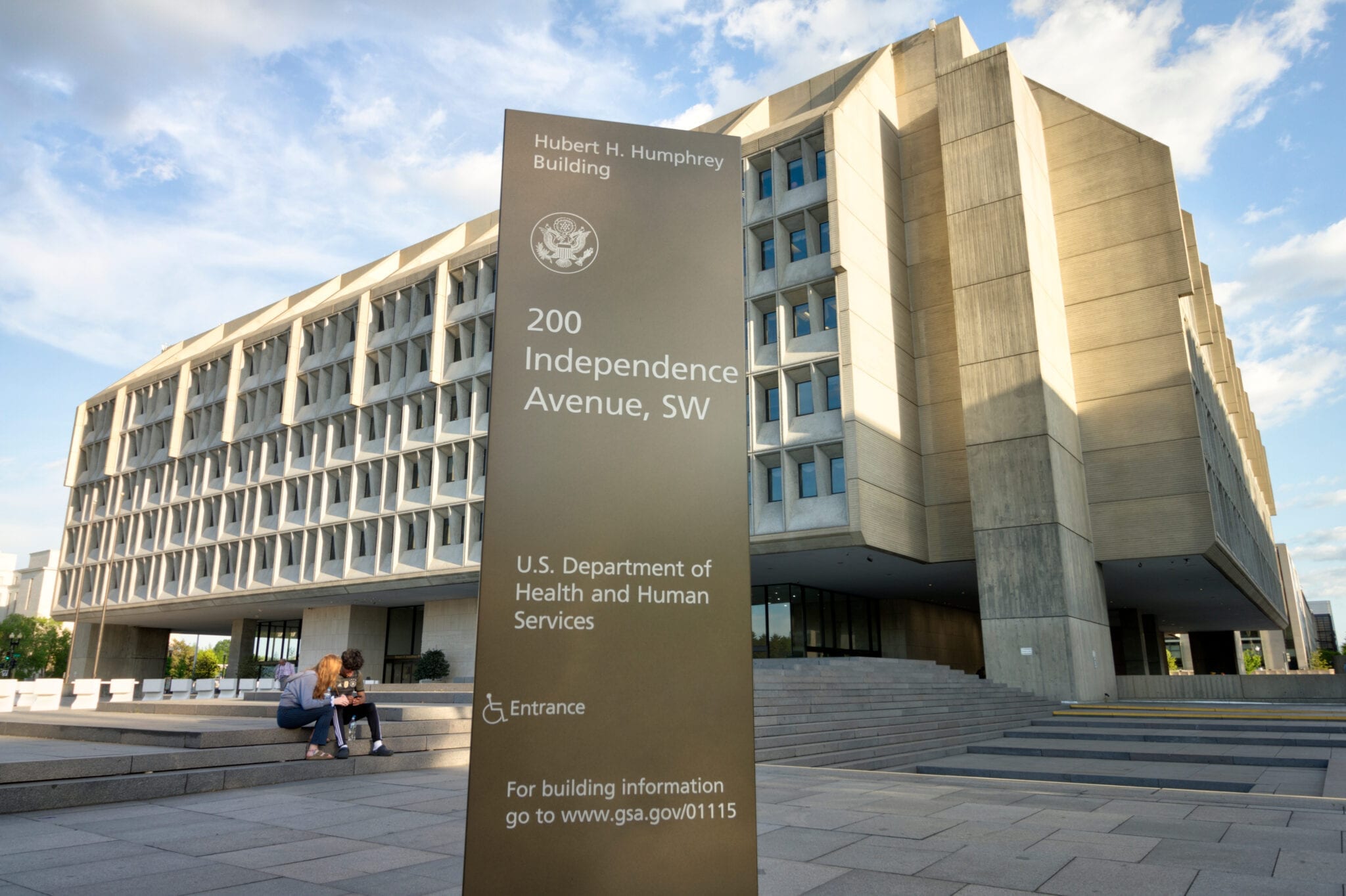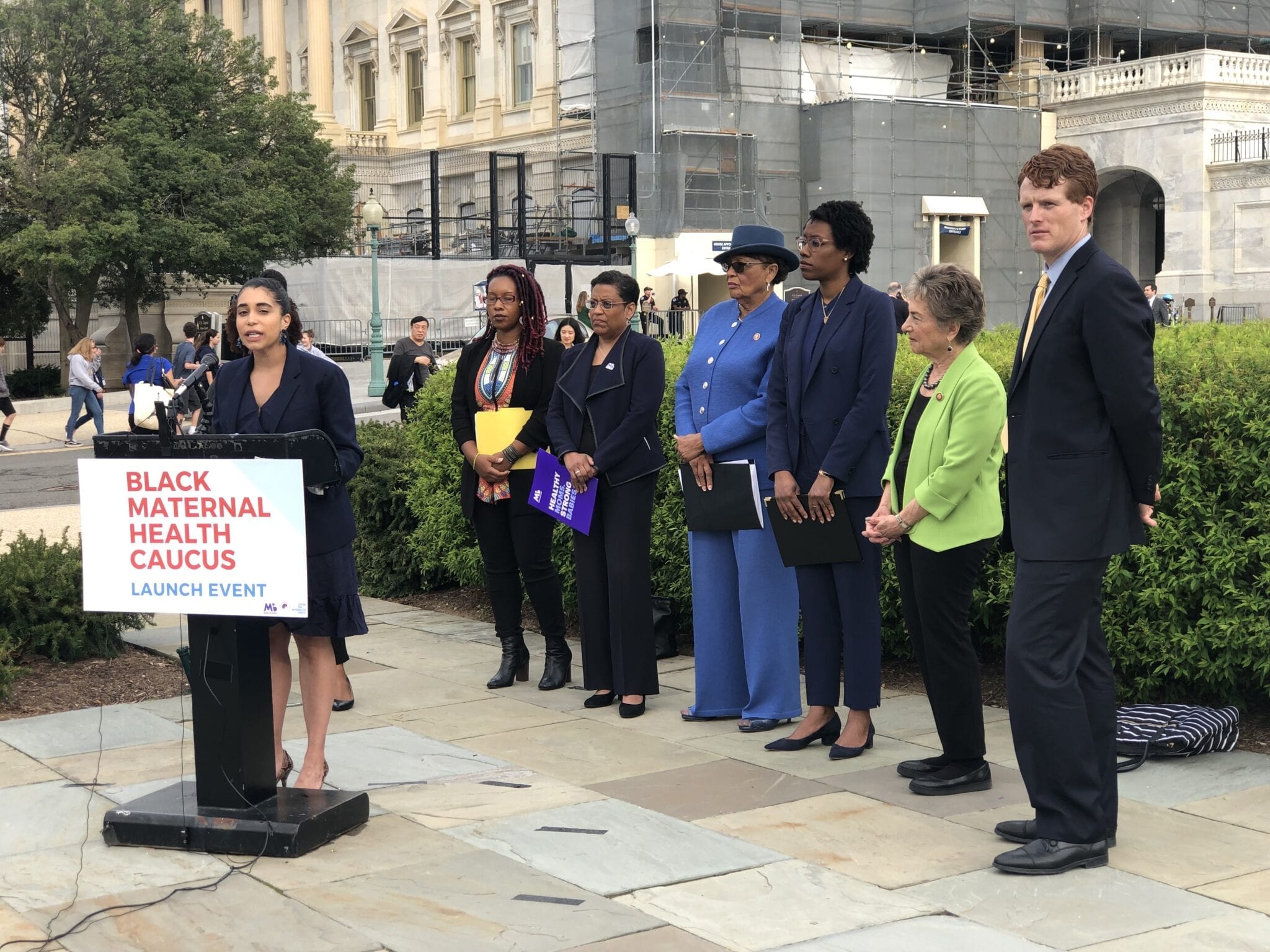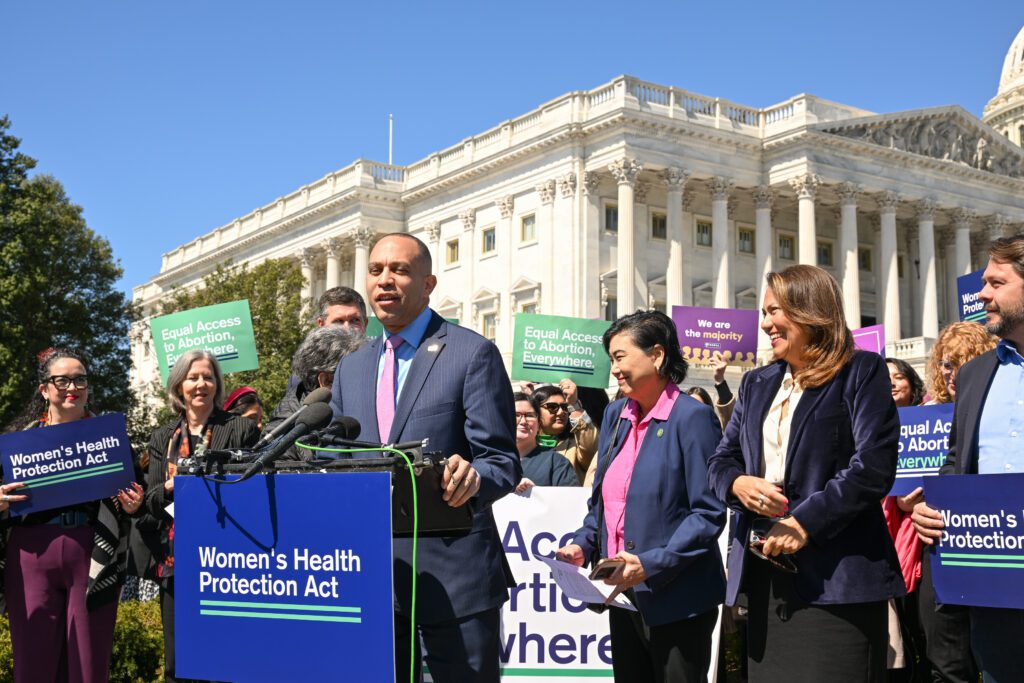The First 100 Days of the Biden-Harris Administration: Reproductive Rights, Health and Justice
An encouraging start, more to do.

In its first 100 days, the Biden-Harris administration has taken crucial steps to undo many Trump-Pence administration’s policies that undermined reproductive rights and access to health care in the U.S. and around the world. These policies enforced systemic barriers to care and harmed people who access care through public programs.
Since January 20, the Biden-Harris administration has rolled back several harmful policies and regulations, recommitted on the global stage to reproductive rights as human rights, appointed officials committed to reproductive rights, and taken steps to end discriminatory policies.
U.S. Federal Administrative Advocacy
The Center’s U.S. federal policy and advocacy team works to ensure that federal agencies protect, respect, and fulfill the human right to health care by holding agencies accountable and promoting policy changes that advance access to reproductive health care. Read more.
“We applaud these important steps while urging the Biden-Harris administration to redouble its efforts to not only rectify the harms of the last four years, but to bring about the world we envision where every person has the ability to make decisions about their reproductive life and has equitable access to reproductive health care services,” said Katherine Gillespie, Acting Director, Federal Policy and Advocacy.
Through its U.S. federal policy and advocacy work, the Center for Reproductive Rights is monitoring the new administration’s progress to ensure that protections for women, Black, Indigenous and People of Color (BIPOC), those working to make ends meet, members of the LGBTQI+ community, immigrants, young people, those living in rural communities, and people with disabilities are fully restored – and calling out what work is still needed.
Actions taken
1. Started rolling back devastating Trump-era anti-abortion policies.
The Biden-Harris administration repealed the “Global Gag Rule,” a rule that denied funding for foreign organizations providing abortion information or services, which had led to decreased access to abortion care and contraceptive care worldwide. Read the memorandum here.
It also issued a proposed rule to undo the Title X “Domestic Gag Rule,” which targeted the Title X family planning program with regulations limiting access to reproductive health care services. The Gag Rule resulted in more than 1,000 health centers across 33 U.S. states leaving the program and nearly halved the network’s capacity to serve patients. Read the proposed rule here.
2. Recommitted the U.S. to promoting and funding sexual and reproductive health and rights around the world.
Noting before the UN Human Rights Council its belief in “the advancement of gender equality and women’s and girls’ empowerment, including promoting their sexual and reproductive health and rights, both in the United States and globally,” in March the new administration recommitted to the inclusion and recognition of sexual and reproductive health and rights (SRHR) as fundamental human rights, accepting the recommendations made to the U.S. on reproductive rights during its Universal Periodic Review (UPR).
It also rejoined the World Health Organization (WHO) and restored funding to the United Nations Population Fund (UNFPA), which directly funds and supports reproductive and sexual health access globally, in a reversal of Trump-era policies.
3. Established the Gender Policy Council within the Executive Office of the President.
The new Gender Policy Council will work directly with the White House to advance gender equity and equality by increasing access to health care, addressing health disparities, and promoting sexual and reproductive health and rights.
The Gender Policy Council is the first of its kind, adopting an intersectional approach to its work to advance equity for those who face discrimination and bias based on multiple factors—including members of the Black, Latina, Native American, AAPI, and LGBTQI+ communities, as well as persons with disabilities. It will have a role in domestic and foreign policy and is co-led by reproductive health and gender equality champions Jen Klein and Julissa Reynoso.
4. Changed State Department policies on SRHR reporting.
“Women’s rights—including sexual and reproductive rights—are human rights.”
The Trump-Pence administration had eliminated the section on SRHR issues in the State Department’s annual Country Reports on Human Rights, which provided key information about the status of human rights, including reproductive rights, in 195 countries around the world. Secretary of State Antony Blinken committed to restoring that section in future Country Reports, and also ordered an SRHR addendum to the 2020 report drafted under the former administration.
The Biden-Harris administration also disavowed the report by the Trump-era State Department’s Commission on Unalienable Rights, which attempted to remove reproductive rights from the global human rights framework. Additionally, it withdrew from the Geneva Consensus Declaration, a non-binding agreement led by the U.S which aimed to restrict sexual and reproductive rights and LGBTQI+ rights in favor of “traditional family values.”
5. Appointed and nominated officials committed to advancing reproductive rights and equal justice under the law.
Health and Human Services
The Department of Health and Human Services (HHS) implements policies and programs that have wide-reaching impacts on access to reproductive health care in the U.S., including the Title X family planning program that is designed to provide reproductive health care services to millions of people living on low incomes who are under- and uninsured.
The new administration has nominated key cabinet secretaries and other senior officials who have already begun to implement the administration’s reproductive rights, health, and justice agenda including Xavier Becerra, the first Latino Secretary of Health and Human Services and a longtime defender of abortion rights and access. Dr. Rachel Levine, the first openly transgender federal official to be confirmed by the Senate, now oversees the HHS Office of Population Affairs, which administers Title X and other key programs and advises the Secretary on a wide range of reproductive health issues.
At the Department of Justice, President Biden has nominated Vanita Gupta and Kristen Clarke—two civil rights attorneys and leaders—to top positions. Vanita Gupta was confirmed as the first South Asian woman to serve as Associate Attorney General and Kristen Clarke’s nomination as the first Black woman to serve as Assistant Attorney General for Civil Rights is pending before the Senate.
Shalanda Young was confirmed as the first Black woman to serve as the Deputy Director of the Office of Management and Budget, the agency responsible for administering the federal budget.
During her confirmation process, Deputy Director Young wrote that “eliminating the Hyde Amendment is a matter of economic and racial justice because it most significantly impacts Medicaid recipients, who are low-income and more likely to be women of color.”
The administration should continue to appoint highly qualified and diverse agency officials who are experts in their field and who will uphold and advance reproductive health, rights, and justice.
6. Directed policy reviews to prohibit discrimination.
The heads of all federal agencies were directed to review existing orders, regulations, guidance documents, policies, programs, or other agency actions to ensure adherence to Title VII and other laws that prohibit discrimination on the basis of gender identity or sexual orientation. As part of the review, all federal agencies will consider whether to revise, suspend, or rescind agency actions, such as the Trump-era rule implementing Section 1557 of the Affordable Care Act that harmfully targets LGBTQI+ people for discrimination in health care, or issue new agency actions to ensure greater protections for LGBTQI+ people.
7. Raised awareness of the U.S. maternal health crisis and its disproportionate impact on Black mothers.
President Biden signed a proclamation April 13 recognizing Black Maternal Health Week: an event started and led by the Black Mamas Matter Alliance to raise awareness, inspire activism, and strengthen organizing for Black maternal health. Recognizing that structural racism is the root cause of the U.S. maternal health crisis, the proclamation called for the prioritization of community-led solutions and a commitment to building a world where Black people may birth and live with dignity.
Coinciding with Black Maternal Health Week, HHS Secretary Becerra approved the first state Medicaid waiver expanding access to maternal health care coverage for postpartum people by offering extended eligibility for full Medicaid coverage during the first year after delivery.
More action needed
“These are important first steps in undoing the harms of the Trump administration’s attacks on reproductive rights. But ongoing and significant threats against reproductive rights require urgent action to not simply return to a pre-Trump status quo, but to move forward on sexual and reproductive health, rights, and justice for all,” said Gillespie.
Additional steps that should be taken by the Biden-Harris administration:
1. Rescind additional harmful and discriminatory regulations.
The administration should rescind Trump-era rules including the Denial of Care rule, which would allow health care workers to deny care based on personal religious or moral objections, and the rule pertaining to the implementation of Section 1557 of the Affordable Care Act (ACA), which eliminates protections against discrimination in health care on the basis of termination of pregnancy, sex stereotyping, and gender identity. Regulations allowing employers and universities to deny contraceptive coverage to their employees and students should also be rescinded.
2. Address racial disparities in maternal health care.
As the crisis in maternal health care in the U.S. worsens, the administration must address racial disparities in maternal health care by launching an interagency task force co-led by the White House and HHS, specifically dedicated to advancing respectful maternal health care and promoting expansion of Medicaid coverage to at least one year postpartum.
3. Promote evidence-based policies for sexual and reproductive health education and services.
The administration must restore scientific integrity and adopt policies guided by evidence and science, not ideology. (View a memo with suggestions for HHS here.) The Biden-Harris administration has already taken an important step in this direction: the FDA recently announced that it will be lifting burdensome and unnecessary in-person restrictions on mifepristone (medication abortion) for the duration of the COVID-19 pandemic. While this move greatly expands access to medication abortion through telemedicine, it’s only temporary. The FDA must now conduct a careful review of the scientific data and medical evidence, and should permanently lift these harmful and medically unnecessary restrictions.
4. Eliminate funding and coverage restrictions.
Hyde Amendment
The Hyde Amendment is a policy that denies coverage of abortion care for people insured through Medicaid and other federal programs.
The administration must eliminate anti-abortion restrictions like the Hyde and Helms Amendments from the budget and urge Congress to repeal them. The Hyde Amendment is a policy that denies coverage of abortion care for people insured through Medicaid and other federal programs. The Helms Amendment bans U.S funding for abortion procedures, even in cases of rape, incest, and threat to a pregnant person’s life.
While pushing for repeal, the administration should mitigate the harms caused by the Helms Amendment, which prevents millions of women worldwide from accessing the reproductive health care they need. The administration must also reverse the federal ban that prohibits the Department of Veterans Affairs from providing any abortion care or counseling or gender transition-related surgical care.
5. Proactively champion reproductive rights legislation.
Several federal bills would improve access to reproductive health care and eliminate disparities in care, including the Women’s Health Protection Act (WHPA), to protect the right to access abortion throughout the U.S.; the Equal Access to Abortion Coverage in Health Insurance (EACH) Act, to eliminate federal coverage restrictions on abortion care, including the Hyde Amendment; the Abortion is Health Care Everywhere Act, to end the Helms Amendment and recognize abortion as essential health care; and the Global HER Act, to permanently repeal the Global Gag Rule.
Momnibus Act of 2021
In February, members of the U.S. House and Senate reintroduced a suite of 12 Center-backed bills to improve maternal health care, particularly for Black and Indigenous women
The administration must also champion the Black Maternal Health Momnibus Act, to advance inclusive and accessible maternal health care, especially for Black and Indigenous people who are most impacted by the U.S. maternal health crisis, and the Access to Contraception for Servicemembers and Dependents Act, to guarantee all women who rely on the military for their health care comprehensive coverage for contraceptives and family-planning counseling. We also urge the administration to support the Reproductive Rights are Human Rights Act, which would require the State Department under any administration to include reporting on the status of reproductive rights in the annual Human Rights Reports.
The administration must actively support these important pieces of legislation to improve access to essential reproductive health services.
Looking forward
Since being sworn into office on January 20, the Biden-Harris administration has made important progress in restoring access to reproductive health care and affirming that reproductive rights are human rights—but there is much work still to be done. The Center looks forward to working with the administration to continue its efforts to reverse the harmful policies of the previous administration and create new policies that advance reproductive rights, health and justice in the U.S. and around the world.
Read more:
- Statement from Lourdes Rivera, Senior Vice President of U.S. Programs at the Center for Reproductive Rights, on President Biden’s Proclamation on Black Maternal Health Week in the U.S. – Center for Reproductive Rights, 04.13.21
- Statement on the Release of the U.S. State Department’s 2020 Country Reports on Human Rights Practices – Center for Reproductive Rights, 03.30.21
- White House’s New Gender Policy Council to Advance Equality and Equity in Domestic and Foreign Policy, 03.08.21
- Center Urges Biden Administration to Take Quick Action to Advance Reproductive Health and Rights, 01.22.2021



